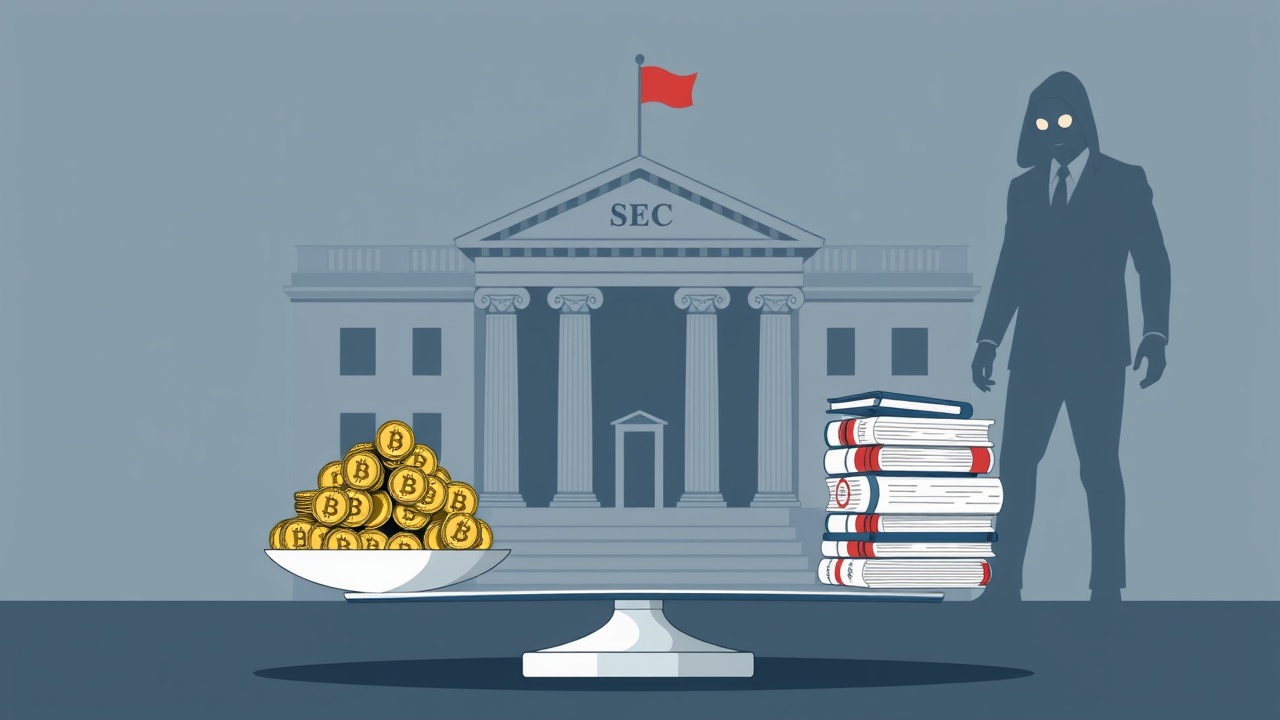SEC’s Stance on Cryptocurrency Staking
The U.S. Securities and Exchange Commission (SEC) is currently under increased scrutiny from both past and present officials regarding its changing position on cryptocurrency staking services. On May 29, the Commission’s Division of Corporation Finance released a new directive indicating that certain staking offerings might not be classified as securities, thus exempting proof-of-stake blockchains from the need for registration as per the Securities Act.
Criticism from Former Officials
This recent policy shift has raised eyebrows, especially as it potentially contradicts several federal judicial opinions. John Reed Stark, a former head of Internet Enforcement at the SEC, criticized the agency’s latest interpretation on social media platform X, suggesting that it conflicts with previous court rulings involving prominent crypto exchanges like Binance and Coinbase. In these cases, judges allowed claims that identified staking products as securities based on established legal standards.
“This is how the SEC dies – in plain view,”
Stark lamented, describing the agency’s shift as a grave departure from its duty to protect investors.
Legal Outcomes and Challenges
The SEC’s legal tussles have shown a range of outcomes. Despite accusations that Binance’s staking offerings constituted unregistered securities, the case was thrown out in May 2025, barring the SEC from filing similar allegations in the future. Conversely, a federal judge permitted the SEC’s lawsuit against Coinbase to advance in March 2024, suggesting that the agency had adequately argued the case, which ultimately also got dismissed in early 2025 as the SEC’s crypto regulatory framework shifted.
Concerns About Regulatory Clarity
Commissioner Caroline Crenshaw voiced her concerns on May 29, stating that the staff’s conclusions about crypto staking do not align with established legal case law nor the Howey test—a critical standard for determining whether certain assets can be classified as securities. She remarked that while the staff’s interpretation may resonate with some aspirations of regulatory clarity, it starkly contrasts with judiciary outcomes and poses a risk of further complicating the legal landscape governing cryptocurrencies.
Impact on SEC’s Legacy
This ongoing transformation is part of what Stark has referred to as a “crypto-deregulatory blitzkrieg,” suggesting that the SEC’s legacy of nearly a century is at stake. Recent actions by the Commission, which include terminating investigations, dropping lawsuits, and initiating discussions with industry stakeholders, have prompted critics to argue that these shifts lead to confusion rather than elucidation in the regulatory environment surrounding digital assets.
Inconsistencies in Digital Asset Regulation
In a statement on June 2, Crenshaw further criticized the inconsistencies within the SEC’s strategy, particularly regarding how different digital assets, like Ether (ETH) and Solana (SOL), are treated concerning registration requirements. She inquired:
“How is it that these crypto assets are supposedly not securities regarding registration, yet shift to being regarded as securities in marketing contexts?”
Defending the Evolving Stance
During her participation at the Bitcoin 2025 conference in Las Vegas, Commissioner Hester Peirce defended the SEC’s evolving stance on cryptocurrency, emphasizing that whether a transaction qualifies as a securities transaction hinges not solely on the nature of the asset but also on the specifics of the deal. She stated:
“Most crypto assets, as we see them today, are probably not themselves securities,”
but cautioned that it is still possible to engage in securities transactions involving non-security assets, highlighting the need for further guidance on this matter.




